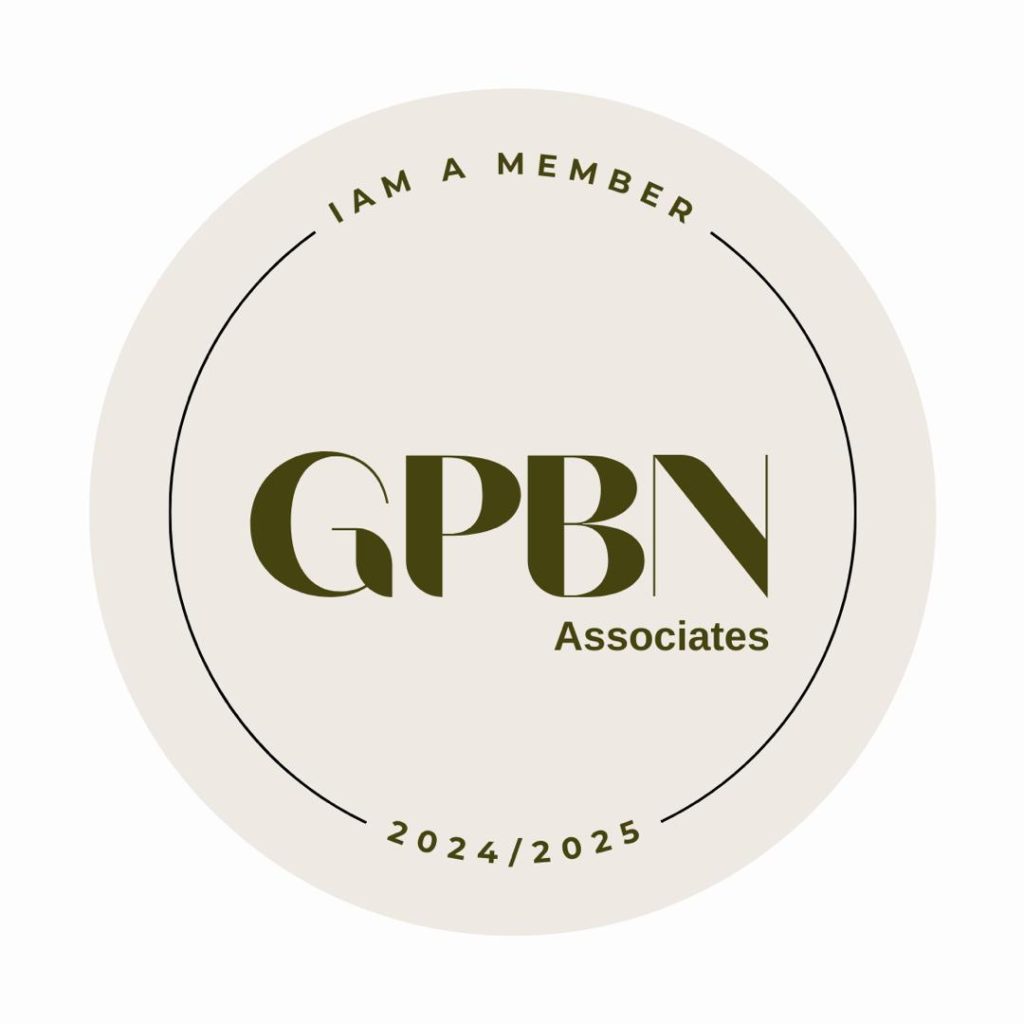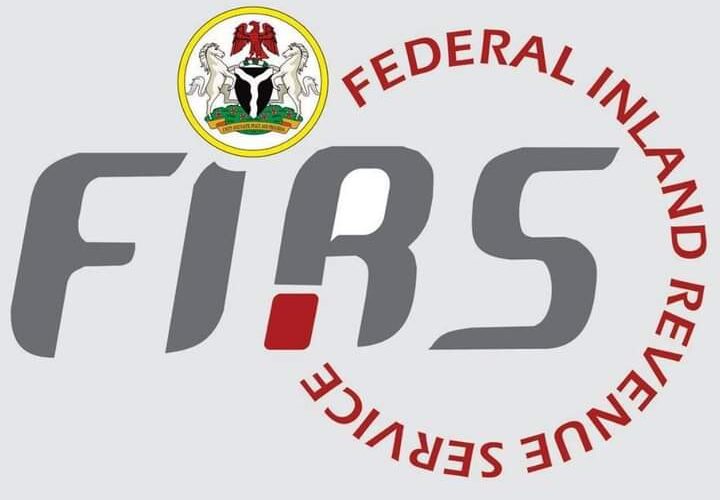

News
Why Nigeria Did Not Sign The OECD Minimum Corporate Tax Agreement — FIRS
The Federal Inland Revenue Service (FIRS) has explained why Nigeria did not sign the Organisation for Economic Cooperation and Development (OECD) G20 Inclusive Framework two-pillar solution to tax challenges of the digitalized economy.
The OECD G20 Inclusive Framework two-pillar solution proposes a framework of rules aimed at tackling base erosion and profit shifting, and providing for the taxation of Multinational Enterprises (MNEs). Four member countries of the Inclusive Framework (Nigeria inclusive), out of 140, have not agreed to the Two-Pillar solution.
Nigeria’s reasons for not agreeing to the Two-Pillar solution was explained in a webinar session hosted by the FIRS last week.
The Executive Chairman of the FIRS, represented by the Group Lead, Executive Chairman’s Group, Mr M. L. Abubakar, noted that taxation of the digital economy has become a topical issue that many economies and developmental blocs are working to solve, including the OECD and the United Nations Tax Committee who have commissioned projects to produce a common front for countries to adopt.
“Nigeria has been involved in various work-streams under the OECD project and had articulated its position on the technical work towards the goal of producing a common front for countries. However, our concerns on potential negative revenue returns that the rule designs would have for developing countries were unaddressed, Nigeria abstained from committing to the rules at this time.” He stated.
He explained that the webinar was therefore to educate the general public on the modalities and impact of the statement released by the OECD Inclusive Framework on the 8th of October 2021 and to provide a broad picture on why Nigeria abstained from signing.
The webinar which was a special edition of the FIRS Taxpayer Engagement Series was hosted by Mr. Olufemi Olarinde, Technical Assistant (Tax Policy) to the Executive Chairman FIRS, while technical papers where delivered by Mr. Mathew Gbonjubola, Mr. Temitayo Orebajo, Mr. Kehinde Kajesomo, Mr, Emmanuel Eze and Ms. Aisha Isa, all staff of the FIRS.
Explaining in details, Mr. Mathew Gbonjubola, the Group Lead Special Tax Operations Group, and Nigeria’s representative at the OECD Inclusive Framework highlighted that despite the expected outcome that both Pillars will increase Global Corporate Income Tax by as much as $150 Billion per annum, with attendant favourable environment for investment and economic growth, there were serious concerns that the pillars did not address negative revenue outcome for Nigeria and other developing countries.
“The general issues that developing countries have with the outcome that was published in October 8th is the high cost of implementation. And that speaks to the complexities of the proposal in the inclusive framework statement. In every complex situation or rule, implementation and compliance will always be difficult. When implementation or compliance is difficult, there would be high cost of implementation.
“Another issue was that the economic impact assessment that was carried out on Pillar 1 and 2 were founded on an unreliable premise. The country-specific impact assessment that was done was top-down. Somebody just looked at the GDP of Nigeria, and says Nigeria’s GDP is this much and then they should be able to buy this number of shoes and things like that. And you and I know, in that kind of postulation, the margin of error is usually very wide. That exactly was what happened with this. Particularly for Nigeria, when we ran the numbers it was way off the figures that the OECD gave us.
“And the final issue most developing countries had was that the developed world, within the inclusive framework, was very indifferent to the concerns expressed by most developing countries. This you can see from the outcome, with respect to the complexity, issues of high cost of implementation and on the issue of revenue accruable to developing countries. When you look at the bulk of the money that would accrue from the project, if any, 70% – 80% will go to the developed countries. Almost nothing comes to the developing countries.” He explained.
On the specific concerns raised by Nigeria, Mr. Gbonjubola, who led Nigeria’s team on the Inclusive Framework negotiations, explained that while the whole project started out to find solutions to the challenges of a digitalised economy the outcome was completely different.
He went further to note that the statement by the OECD Inclusive Framework required all parties to remove all Digital Service Taxes and other relevant similar measures with respect to companies taxation and to commit not to introduce such measures in the future.
“The statement required the withdrawal of unilateral measures by countries. Which Nigeria does not have a problem with (Nigeria does not have any unilateral measure targeted at digital services companies). However, the paper that was released on unilateral measures was so expansive in its definition that we are concerned that the taxing rights that Nigeria has always enjoyed may be withdrawn.”
He further explained that Nigeria is unable to implement the mandatory binding resolution on arbitration because of constitutional limitations as to tax dispute resolution.
He also stated that for Nigeria, “Pillar 2 is not a deal breaker because Nigeria could work with Pillar 2. “We have a few issues with Pillar 2 but we could live with them but because Pillar 1 and 2 are a single package, since we are rejecting Pillar 1, we can’t take on Pillar 2”.
“Under the inclusive framework rule you either accept both Pillars or you reject both Pillars. You cannot pick one to the exclusion of the other. And since Nigeria is not able to join one of the pillars, it means we are out of both Pillars.”
Mr. Gbonjubola also stated that Nigeria does not see any additional revenue coming to by way of Pillar 2, though he added that it could act as a behaviour modifier for policy makers to take another look at the various tax incentives and tax waivers we have in our tax laws and begin to restructure them in other to ensure that we are not deliberately throwing away revenue.
“Nigeria could not sign up to the statement of the inclusive framework because it did not address the concerns that we had expressed as a country and it also did not take cognisance of issues around developing countries, which will make those outcomes not to provide additional revenue, and if any, very little, and at very significant cost.”
He further stated that Nigeria, which had participated in all the meetings of the working groups would continue to participate in the design of all technical notes and model rules, and would agree to the Pillars if its expressed concerns are addressed.
“And finally, just like the Honourable Minister of Finance said a couple of months ago, Nigeria would continue to participate in the inclusive framework activities particularly the design of all the technical notes and the model rules, and then, if and only if, the concerns we have expressed are addressed, then Nigeria still has the chance to join up and to sign up. But if not, we will leave that to our policy makers to decide going forward”
The Webinar had in attendance Prof. Abiola Sani, a professor of Commercial Law in Nigeria as well as other eminent tax practitioners and representatives of government and private institutions. The representatives of the Kenya and Zambia revenue authorities were also in attendance.
News
BREAKING: Omoyele Sowore Arrested at Federal High Court, Abuja After Meeting Nnamdi Kanu
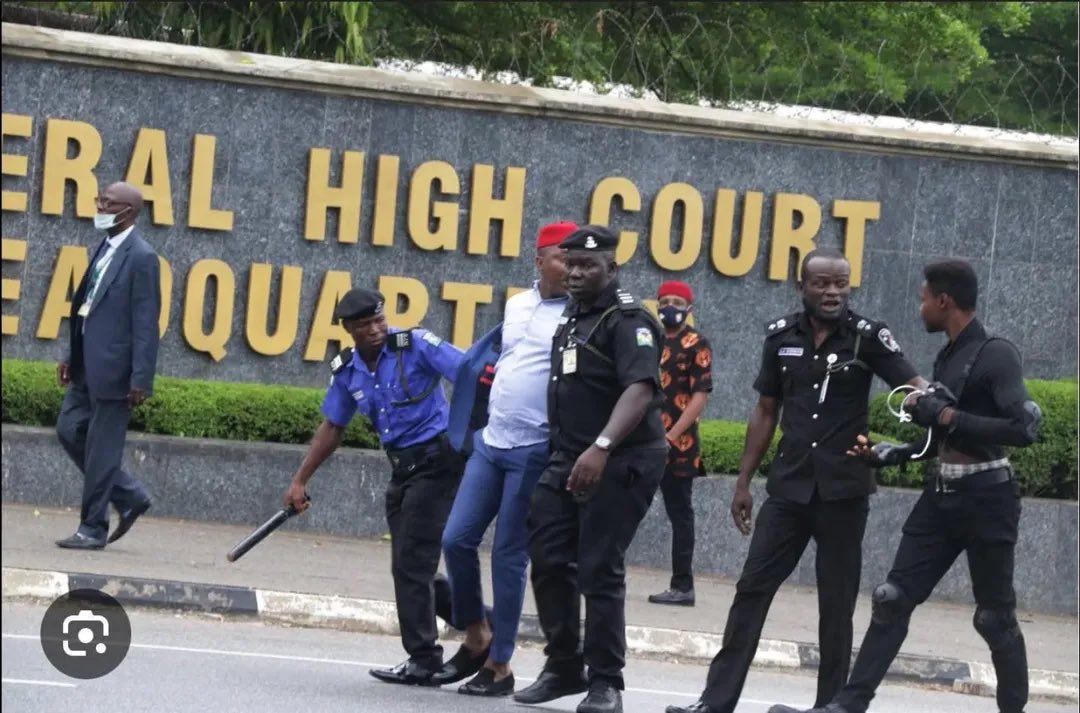
Human rights activist and politician Omoyele Sowore was reportedly arrested on Thursday at the Federal High Court in Abuja shortly after meeting the detained leader of the Indigenous People of Biafra (IPOB), Nnamdi Kanu.
Eyewitnesses said Sowore was whisked away by security operatives on the orders of the Commissioner of Police, moments after leaving the courtroom where he had exchanged greetings with Kanu.
The activist, known for his outspoken stance on governance and civil rights, had earlier shared a post on X (formerly Twitter) confirming his meeting with Kanu, describing him as “powerful and unrelenting.”
Reacting to the arrest, prominent human rights lawyer Inibehe Effiong condemned the incident on X, calling it “preposterous” and a violation of judicial integrity.
Effiong wrote:
“The arrest of Omoyele Sowore at the Federal High Court in Abuja moments ago is preposterous.
The police and the Tinubu regime are making a mockery of our judicial system.
He should be freed immediately.
Stop the shenanigans.”
As of press time, the reason for Sowore’s arrest remains unclear, and authorities have not issued an official statement regarding the incident.
A video circulating online shows the moment the activist was surrounded by police officers before being taken away from the court premises.
This development comes just hours after Nnamdi Kanu told the court he would be representing himself following the withdrawal of his legal team, led by Chief Kanu Agabi (SAN).
World News
Two Killed, Two Injured as Plane Bursts Into Flames After Takeoff Crash in Venezuela

A tragic plane crash in Venezuela has claimed two lives and left two others injured after a Piper Cheyenne I aircraft erupted into flames shortly after takeoff on Wednesday, October 22, 2025.
The incident occurred at Paramillo Airport in Táchira State, with the aircraft crashing within the vicinity of San Cristóbal National Park moments after takeoff.
A shocking video circulating online shows the aircraft struggling to gain altitude before tilting sharply, striking one of its wings on the ground, and exploding into a massive fireball.
Witnesses nearby can be heard screaming in horror as the plane hit the ground and burst into flames.
According to Mail Online, local authorities identified the deceased as Toni Bortone and Juan Maldonado, while two other passengers survived but sustained serious injuries.
Preliminary reports suggest the pilot may have lost control after one of the aircraft’s tires exploded during takeoff.
Emergency services, including firefighters, Táchira Civil Protection, and the Bolivarian National Police (PNB), responded swiftly to the crash site around noon, battling the blaze and rescuing survivors from the wreckage.
Officials confirmed that the aircraft was being used for government logistics operations, although further details about its mission remain under investigation.
The ill-fated plane, identified as a Piper Cheyenne I (PA-31T1), is a twin-engine turboprop model manufactured by Piper Aircraft in the late 1970s. The aircraft type is widely used in both civilian and governmental operations due to its reliability and performance.
Aviation authorities have launched an investigation to determine the exact cause of the crash, focusing on potential mechanical failure or maintenance issues.
This latest tragedy follows another aviation accident in Venezuela last month. In September 2025, a Learjet 55 crashed near Simón Bolívar International Airport outside Caracas during takeoff amid adverse weather conditions, leaving two passengers injured.
Follow BONA NAIJA FOR MORE
Biafra
Nnamdi Kanu Tells Court He’ll Defend Himself as Lead Counsel Kanu Agabi, Others Withdraw
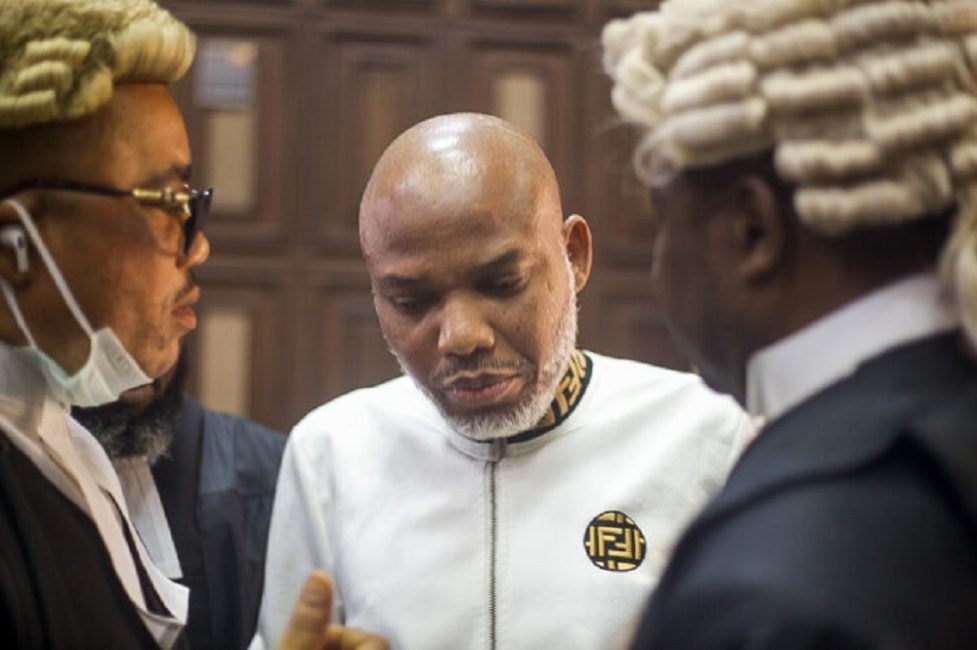
The detained leader of the Indigenous People of Biafra (IPOB), Nnamdi Kanu, on Thursday informed the Federal High Court that he would be representing himself in his ongoing trial after his legal team, led by Chief Kanu Agabi (SAN), withdrew from the case.
Agabi, a former Attorney-General of the Federation, told the court that the entire defence team was stepping down, explaining that the defendant had decided to personally take over the conduct of his case.
“All counsel in the defence have agreed to withdraw as the defendant has chosen to represent himself,” Agabi announced before the presiding judge.
Confirming the development in open court, Kanu stated that he had opted to handle his own defence “for now,” though he might reconsider that decision at a later stage. When asked by the judge whether he wanted the court to assign him another lawyer, Kanu declined, insisting he would proceed on his own terms.
In his brief oral argument, the IPOB leader maintained that the court lacked jurisdiction to try him, reiterating his long-standing position on the matter.
Meanwhile, confirming Kanu’s presence in court, human rights activist Omoyele Sowore shared an update on his X (formerly Twitter) account, saying he met with the separatist leader in person.
Sowore wrote:
“Finally, Mazi Nnamdi Kanu and I met at the Federal High Court today. The man is powerful and unrelenting. We greeted and hugged and the bond is strong!”
Thursday’s proceedings mark another dramatic twist in the long-running legal battle between the Nigerian government and Nnamdi Kanu, who has been in custody facing charges related to treasonable felony and separatist activities.
Follow BONA NAIJA for more
News
CAF Awards 2025: Victor Osimhen, Stanley Nwabali Nominated as Lookman Misses Out
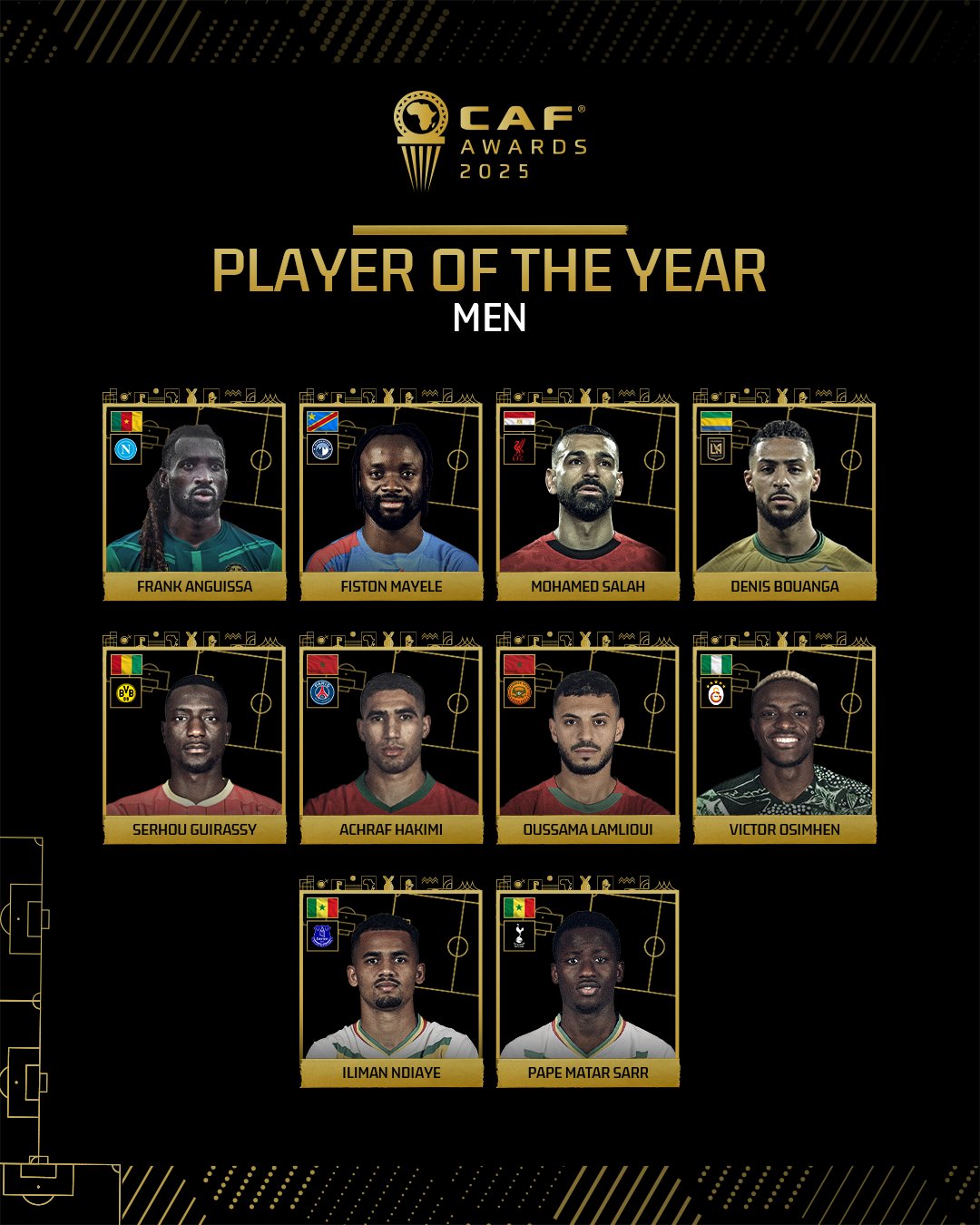
Super Eagles stars Victor Osimhen and Stanley Nwabali have been nominated for top honours at the 2025 CAF Awards, even as Nigeria’s national team failed to make the shortlist for the National Team of the Year category.
CAF unveiled the nominations on Wednesday, confirming Osimhen’s place among the final ten-man shortlist for the Men’s Player of the Year award. The Galatasaray striker will face stiff competition from some of Africa’s biggest names, including Mohamed Salah (Egypt), Achraf Hakimi and Oussama Lamlioui (Morocco), Serhou Guirassy (Guinea), Fiston Mayele (Congo), Frank Anguissa (Cameroon), Denis Bouanga (Gabon), and Senegalese duo Illimane Ndiaye and Pape Sarr.
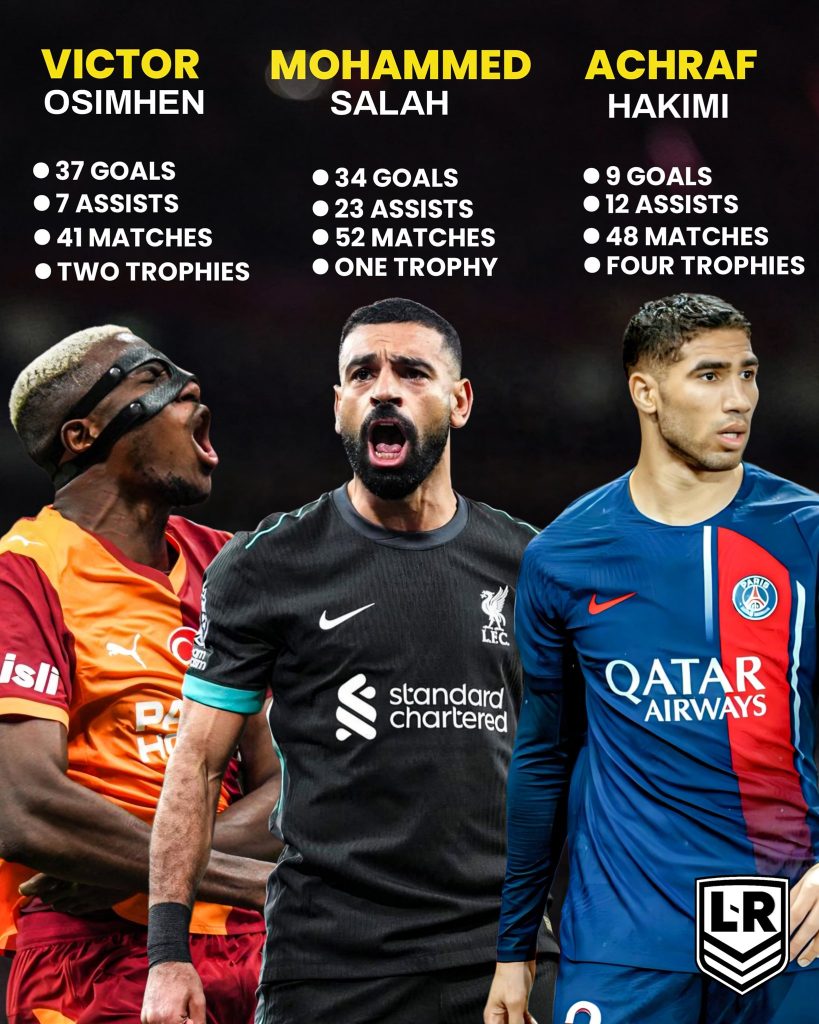
Osimhen, who previously won the award in 2023, enjoyed another spectacular campaign in Turkey, scoring 26 league goals to fire Galatasaray to the Super Lig title. His performances also earned him a record-breaking €75 million transfer from Napoli, setting a new benchmark as the most expensive signing in Turkish football history.
In the goalkeeping category, Stanley Nwabali was recognised for his remarkable consistency at both club and international levels, earning a spot among the nominees for Men’s Goalkeeper of the Year. The Chippa United shot-stopper will contest the award with Yassine Bounou (Morocco), Ronwen Williams (South Africa), and Andre Onana (Cameroon).
Nigeria’s strong representation continues with Flying Eagles captain Daniel Bameyi, who made the shortlist for the Young Player of the Year award after an impressive season leading the national U-20 side.
On the women’s front, Super Falcons stars Rasheedat Ajibade and Esther Okoronkwo have both been nominated for the CAF Women’s Player of the Year award, highlighting Nigeria’s continued presence among Africa’s football elite.
However, the Super Eagles were notably snubbed in the National Team of the Year category despite their encouraging performances during the 2025 World Cup qualifiers a decision that has drawn mixed reactions from fans and analysts.
The 2025 CAF Awards ceremony is expected to take place later this year, celebrating the continent’s best footballers, coaches, and teams for their achievements over the past season.
Follow BONA NAIJA for more
News
Girl Child Education: Teenager Joy Ogah Acts as Nigeria’s Vice President for a Day
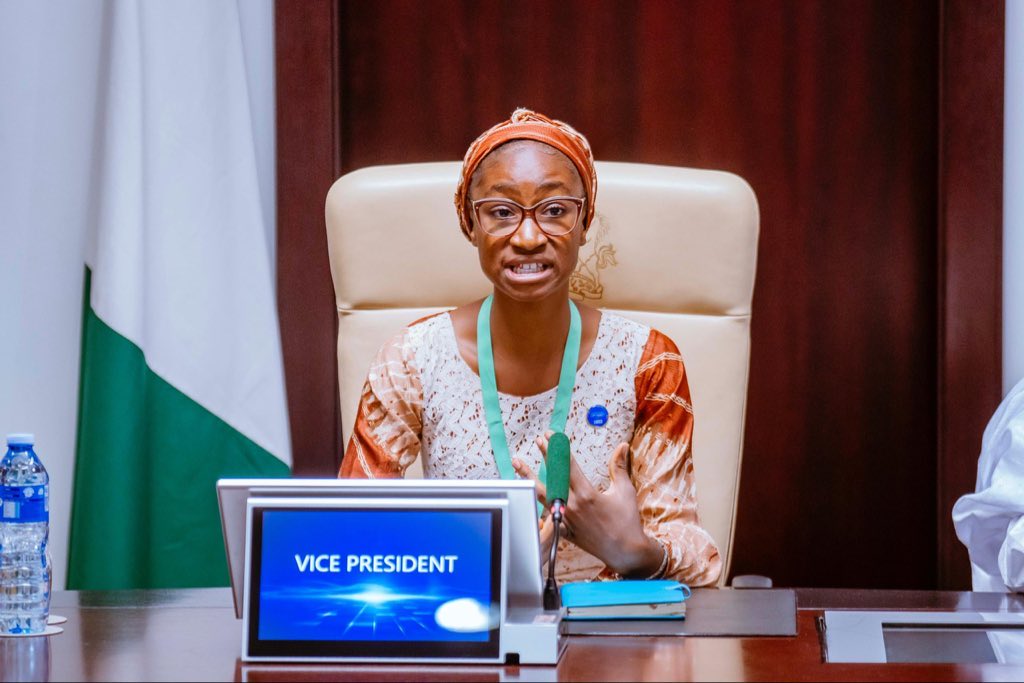
It was an inspiring moment at the State House in Abuja on Monday as 16-year-old Joy Ogah symbolically took over the seat of Vice President Kashim Shettima, serving as Nigeria’s Vice President for a day in a ceremony organized to promote girls’ education and leadership.
The event was part of activities marking the International Day of the Girl Child, organized by Plan International, a global development organization advocating for girls’ rights and empowerment.
‘Educate the Girl Child, Empower the Nation’
Taking her seat at the Vice President’s desk, Joy Ogah called on Nigerian authorities to invest in safe, inclusive schools and to enforce laws protecting girls.
She highlighted the alarming statistic that 10.5 million Nigerian children are out of school, most of them girls, and urged the government to provide free sanitary products and better sanitation facilities in schools to support girls’ education.
“When girls are educated, they become leaders, innovators, and change-makers. We must make our schools safe and accessible for every girl,” she said.
Shettima Praises Initiative
Vice President Kashim Shettima, who warmly invited Joy to take his seat, commended the symbolic gesture and reaffirmed President Bola Tinubu’s commitment to empowering the girl child through education.
He emphasized that the Tinubu administration is gender-inclusive, highlighting First Lady Senator Oluremi Tinubu as a model of female leadership and national service.
“Our administration believes in empowering women and girls. Educating the girl child is investing in the nation’s future,” Shettima said.
The brief but impactful event drew applause from education advocates, policymakers, and development partners, symbolizing hope for a more inclusive and equitable Nigeria.
Follow BONA NAIJA for more
-

 Entertainment3 weeks ago
Entertainment3 weeks agoBig Brother Naija Live Update: KOLA, SULTANA Evicted #BBNaija
-

 Entertainment3 weeks ago
Entertainment3 weeks agoImisi Crowned Winner of Big Brother Naija Season 10
-

 Music News3 weeks ago
Music News3 weeks agoOdumodublvck Set to Drop ‘Industry Machine’ The Album Featuring Davido, Wizkid, Skepta & Stormzy
-

 News3 weeks ago
News3 weeks agoFirst Lady, Oluremi Tinubu Celebrates World Teachers’ Day 2025
-

 Entertainment2 weeks ago
Entertainment2 weeks agoBig Brother Naija Winners Ranked by Vote Share (2006 – 2025)
-
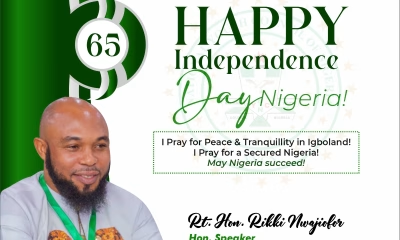
 News3 weeks ago
News3 weeks agoNdigbo Youth Parliament Speaker Calls for Equity, Unity, and Youth Empowerment on Independence Day
-

 News5 days ago
News5 days ago16 Nigerian Military Officers Arrested Over Alleged Coup Plot to Oust President Tinubu
-

 Entertainment3 weeks ago
Entertainment3 weeks agoBBNaija Season 10: Faith Wins Innoson Task, Gets First Car
-

 News4 days ago
News4 days agoNed Nwoko Gives Reason for Clash with Regina Daniels
-

 Music Video2 weeks ago
Music Video2 weeks agoRema Drops “Fun” Official Video Featuring Crayon, ThisizLondon & Valking



































